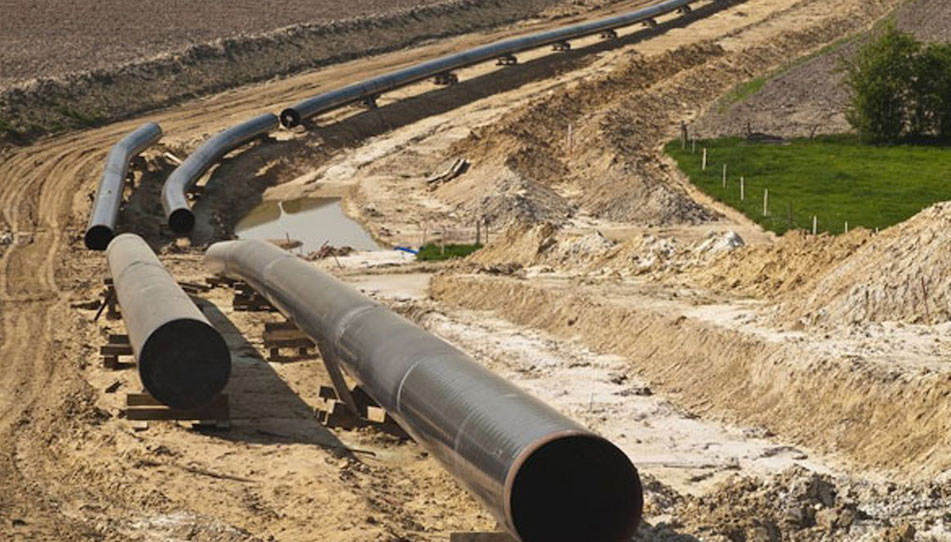The first major overhaul of the National Environmental Policy Act (NEPA) in 40 years would make it easier for major federal construction projects to move forward, proponents of the revisions say, but legal challenges are expected from environmental groups who contend the Trump Administration proposal would gut the project environmental review process and exacerbate the effects of climate change.
The administration released on Dec. 9 a draft of its notice of proposed rulemaking in response to a 2017 executive order from President Donald Trump calling for a NEPA review and modernization to enable more infrastructure projects to be built.
In a call with reporters, Council on Environmental Quality Chair Mary Neumayr said, “over time, implementation of NEPA has become increasingly complex and time-consuming…the proposed rule seeks to reduce paperwork and delays and promote better decision-making, consistent with NEPA’s environmental policy.”
Climate Change Risk Downplayed
Key provisions include limiting the time for completion of environmental impact statements to two years, and one year for environmental assessments; strengthening the role of lead agencies when multiple agencies are involved; soliciting public input earlier in the NEPA process; clarifying that suggested “reasonable alternatives” be technically and economically feasible; and enabling contractors and applicants greater input in preparing environmental impact statements.
The proposal also would not require agencies to consider the impacts that projects might have on contributing to climate change.
It comes after a series of reversals to Obama administration acts.
Last summer, the Trump White House directed publishing of draft guidance that removed “climate change” and suggested that when relevant, agencies should consider “whether the proposed action would be affected by foreseeable changes to the affected environment under a reasonable scenario, says Brianne Eby, policy analyst at the Eno Center for Transportation, a think tank in Washington. “It’s clear that the administration has made its goals apparent by removing climate change. What’s yet to be determined are long-term costs that could result from climate change, such as repairing roads damaged by severe storms.”
She says legal challenges may hinge on whether the new regulation compromises underlying environmental protection laws.
Rep. Raúl M. Grijalva (D-Ariz.), chair of the House Natural Resources Committee, claims in a statement that the proposed change is illegal because “courts have been crystal clear that NEPA requires considering climate impacts.”
Former President Richard Nixon signed NEPA into law in 1970, with the council developing regulations for federal implementation of the law in 1978 that was designed to ensure that the environmental impacts of projects requiring a federal permit--from pipelines to highways and airports to wastewater treatment plants—are considered as part of the decision to allow projects to be built.
However, administration officials say that the NEPA process has become increasingly costly, complex, and can delay needed projects from obtaining necessary permits for years.
Furthering Agendas
Construction groups applauded the proposal, which they say would enable important infrastructure projects to be built and put more workers on jobsites.
"The problem with the current environmental review process is that it long ago stopped being about evaluating the environmental impacts of a proposed project and has become a way for special interest groups to further their agenda by holding needed infrastructure and development projects hostage to countless lawsuits and delays,” says Stephen Sandherr, Associated General Contractors of America CEO.
American Road & Transportation Builders Association president David Bauer notes that it can take up to seven years to complete the NEPA process for a new federal-aid project. “That’s too long,” he says.
Terry O’Sullivan, general president of the Laborers’ International Union of North America, says that its members have experienced “endless delays” on major infrastructure projects, and that the NEPA overhaul would “modernize the permitting process for energy and transportation projects and speed up the creation of good jobs while maintaining the underlying regulations that ensure that the environment and communities are protected.”
But reaction from environmental advocates was swift, and furious.
Take-home Exams
Former U.S. Environmental Protection Agency Administrator Gina McCarthy, now president and CEO of the Natural Resources Defense Council, said in a statement, "While our world is burning, President Trump is adding fuel to the fire by taking away our right to be informed and to protect ourselves from irreparable harm.”
She said environmental groups will use every “tool in our toolbox” to prevent the proposal from becoming final.
Sen. Tom Carper, top Democrat on the Environment and Public Works Committee was particularly troubled by the proposal’s provisions that would enable companies to prepare their own impact statements. “We should not be giving self-graded take-home exams on polluting companies,” he said in a statement.
For example, CEQ’s own numbers indicate that more than 95% of federal projects move forward with only minimal environmental review, the Partnership Project says, stating that less than 1% of projects require a detailed environmental impact statement, and the average time to complete the review is four and a half years.
But at a Dec. 9 news conference at the White House, officials noted that the proposal relates solely to the process of environmental review; it does not change the underlying bedrock environmental laws such as the Clean Air Act, The Clean Water Act and the Endangered Species Act.
The proposal will be published in the Jan. 10 Federal Register, with the public having 60 days to comment on the changes.






Post a comment to this article
Report Abusive Comment